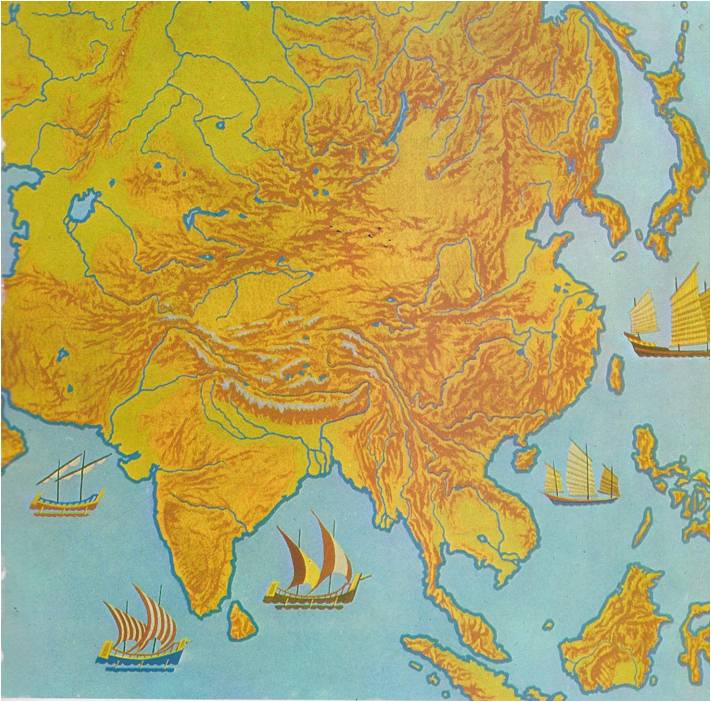UNTIL 1947, when the Moslem state of Pakistan was carved out of its western and eastern corners, the entire triangle of land that points south from the Himalaya Mountains into the Indian Ocean was known as India. Geographers call this huge land mass a subcontinent, because it is almost completely cut off from the rest of the continent of Asia. The Himalayas on its northern frontier form a continuous barrier of rock, the highest in the world. “MOTHER GANGES” From the southern slopes of the Himalayas, two great rivers run down to the ocean. The valley of the Indus River, …
Read More »